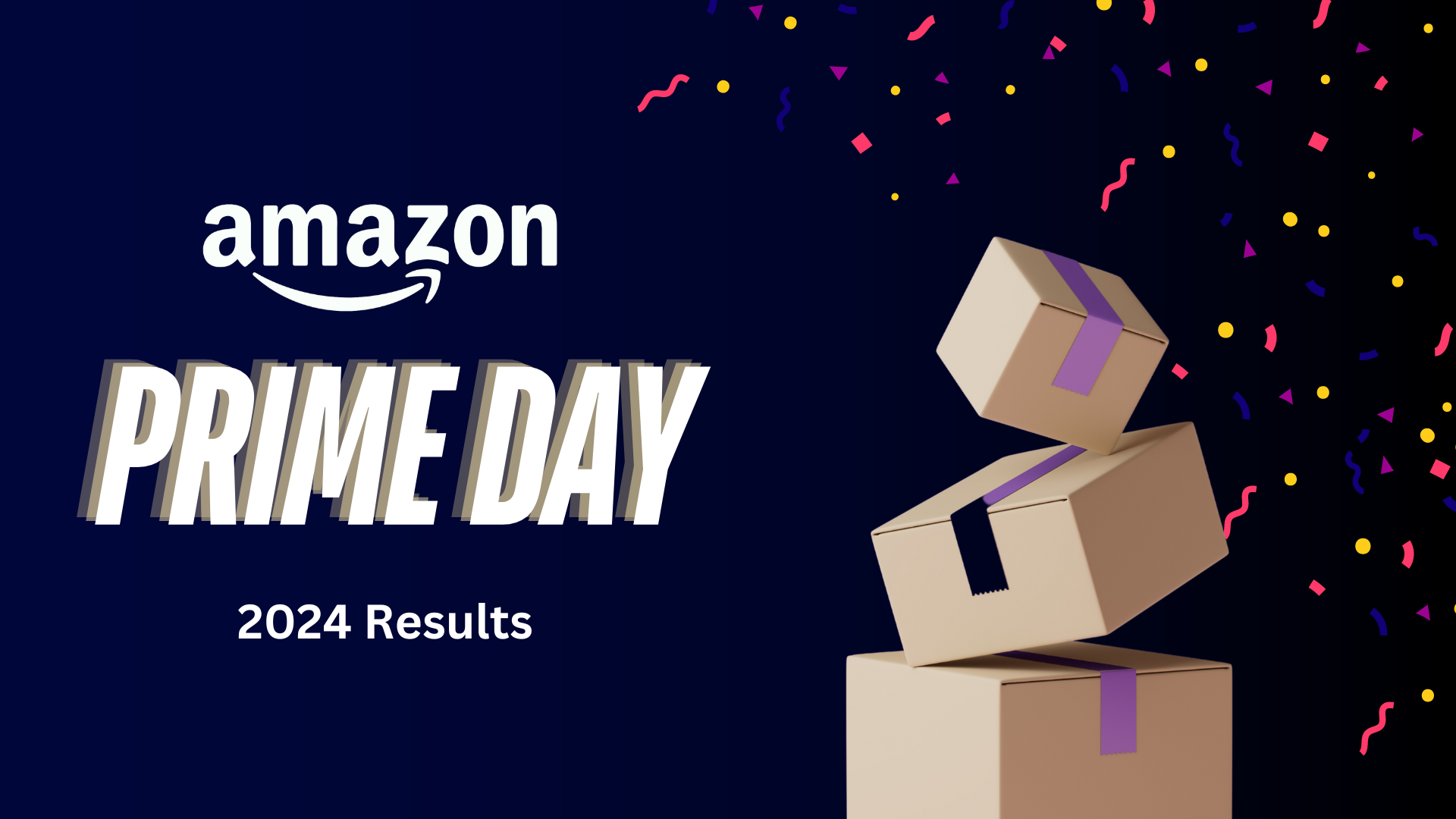In the ever-evolving world of digital retail, brands face a daunting choice when seeking support for their Amazon and other retail marketplace operations: should they partner with an agency or opt for a Software as a Service (SaaS) solution? Even then, sometimes the options seem to blur. Some agencies have built their own tech, and some software companies offer managed services.
Of course, we have a dog in the fight here at Acadia - we only offer managed services, opting to bring together best-in-class tech tools to make us more efficient and effective. So while I may not be considered totally unbiased, I can share my observations from working with dozens of brands who have used all the various models. This breakdown aims to guide brands in making an informed decision that aligns with their strategic goals and operational needs.
The Agency Model: A Partnership Driven by Client Care and Strategy
At its core, an agency model is about partnership and strategy. Agencies excel in client care, offering personalized support and bespoke strategies that align with a brand's unique goals. This model thrives on close relationships, understanding a brand’s intricacies, and navigating the complexities of marketplaces with a seasoned touch.
From my experience, the value of an agency lies in its commitment to sourcing the best tools and solutions for its clients. For instance, despite our close collaboration with Pacvue, our tech stack is continually being refined around what best meets our clients’ needs. When a capability in an existing tech tool is not quite sufficient, we find a different solution to meet the need.
Key benefits of working with a retail media agency:
- Customized Strategy: Tailored approaches that account for a brand’s specific market positioning and goals. Chances are, your brand’s situation is complex. You may have strong market share for one product line, but are falling behind with another. Amazon has just ‘crapped’ out one of your flagship products, and your company has recently switched its focus from growth, to being more focused on profitability. An agency will help you navigate the various priorities and adjust the approach accordingly.
- Hands-on Management: Direct and continuous involvement in campaign management, adjustments, and optimizations. One example that comes to mind is high-volume sales events like Prime Day. Emily Ostrander, one of our retail media managers, shared how the CPC for one campaign type spiked in the mid-morning to an unacceptable level. While our software flagged this issue, she made the decision with the clients’ objectives in mind to re-allocate most of that budget to a different campaign type - preserving the client’s budget and generating great results on this high-stakes day.
- Expert Insight: Agencies bring a wealth of experience across multiple clients and industries, offering valuable insights that can be leveraged for competitive advantage. An algorithm can certainly recognize data patterns, but there’s usually a lot of context outside of the data story too, like your brand’s goals and trends that are emerging on the marketplace.
Considerations:
- Cost: The level of personalized service and expertise generally comes at a higher price compared to SaaS platforms. This is especially true of situations where the tech solution expects you as a brand to do most of the heavy lifting within the tool. Consider the cost of your own time or your team’s time, in order to compare apples-to-apples.
- Scalability: While agencies can scale efforts in alignment with client growth, there may be limits based on agency size and resource allocation. This is a good question to dig into with an agency during your RFP process. Listen to the podcast episode: How to run a great RFP process.
The Tech Model: Seeking Efficiency and Automation
There are dozens of tech platforms in the retail marketplace and retail media space. This model promises automation, data analytics, and the ability to execute campaigns with greater control over the levers of advertising and analytics. And often for a lower ticket price than working with an agency.
Many platforms in our space like CommerceIQ, Teikametrics, Stackline, and Skai, also offer managed services as part of their offering - an attractive proposition for brands who would like the ‘best of both worlds.’ But there are drawbacks to this model, as we’ll discuss.
Key benefits:
- Control: Direct access and hands-on control over campaigns and analytics. This is a compelling reason for brands who’ve had a negative experience with their data being held “hostage” by solution providers in the past. These retail channels may be significant to your brand, and there’s a lot of valuable data. So the concept of ‘owning’ your data can be compelling. I’ll share later how you can mitigate this risk with an agency.
- Scalability: The strength of SaaS lies in its focus on developers and product managers to continuously innovate on the software front, making these platforms increasingly efficient and insightful. Depending on the market the tool serves, it can be easy to scale up efforts as your brand grows.
- Cost-Effectiveness: Typically offers a more predictable cost structure, possibly leading to lower overall costs compared to full-service agency support.
Considerations:
- Business Model Focus and Managed Services. SaaS companies are fundamentally technology providers. Their primary goal is to develop and refine their software platform, ensuring it offers cutting-edge features that automate processes, provide valuable data insights, and streamline campaign management for their users. This focus results in a significant portion of their resources—both financial and human—being allocated toward software development and product management. Given this allocation of resources toward product development, the managed services offered by a SaaS company often emerge not as their core offering but as a supplementary service. This can lead to a scenario where the managed services are provided as a stop-gap solution—a means to onboard and support users in leveraging the tool effectively rather than offering deep, strategic ad campaign management or comprehensive marketplace strategy. Thus, while a SaaS tool can empower brands with technology, the extent and depth of strategic support that accompanies the tool can be limited. The focus remains on helping the brand utilize the software effectively, often sidelining more nuanced strategic considerations.
- Tool Selection and the Limitation of Choice. There may be a tendency to push the platform’s tools, even if not perfectly fitting the brand's needs. One of the advantages of partnering with an agency is the commitment to sourcing the best tools and platforms tailored to the unique needs of their clients. In contrast, a SaaS- based solution, by its very nature, encourages the use of its platform, even in scenarios where certain features may be lacking or inferior compared to other tools available in the market. For brands, this means that while they can benefit from the advanced technology and automation features a SaaS platform offers, they might miss out on the opportunity to utilize a more fitting tool or a combination of tools that could drive results or insights.
A note on owning your data
The allure of 'owning' one's data is undeniably compelling for brands venturing into the digital marketplace, especially when considering a software solution for their marketing and advertising needs. This notion suggests complete control, transparency, and the possibility of leveraging this data for strategic insights and decisions. However, there are nuances and potential flaws in this reasoning that brands must consider, alongside strategies to mitigate related risks when partnering with an agency.
- Data Ownership vs. Data Utilization: Owning data outright, while seemingly advantageous, entails more than mere possession. The key lies in effectively interpreting and leveraging this data to inform strategic decisions. SaaS platforms can provide the tools for data analysis but may not always offer the comprehensive support or expertise to decode complex datasets or insights leading to actionable strategies.
- Platform Limitations: Even if a brand owns its data within a SaaS platform, there's a risk tied to the limitations of the said platform. For example, when using an ad-tech tool, any intrinsic limitations of the tool in terms of data analysis or campaign optimization also limit what the brand can do with their data.
Here’s what you can do to mitigate concerns of not having direct access to your data:
- Lay your concerns on the table at the beginning. Talk to your agency partner about their data ownership philosophy. For instance, understand how DSP is managed - is it managed directly in your account or through the agency’s instance? Either can work, as long as you’re clear upfront with your expectations. You may ask your agency partner to agree to share certain reports with you on an agreed cadence, for example.
- Ideally, work with an agency partner who is working through your marketplace or vendor account, rather than acting as a reseller for your brand. This means that you have access to all sales and customer behavior data. Read more about the challenges with the reseller business model in this blog post.
Making the Choice: What’s Right for Your Brand?
Selecting between an agency or SaaS model should be influenced by a brand's internal capabilities, strategic priorities, and the complexity of their marketplace goals. Brands with a robust and experienced in-house team might in fact find the control and efficiency of a SaaS model actually aligns well. But there’s also a number of brands who recognize that they lack the expertise or resourcing to reach their goals on retail marketplaces.
In conclusion, both models offer distinct advantages. The choice largely depends on a brand’s specific needs, internal capabilities, and long-term strategic goals. Whichever model you choose - just be sure to understand the nuances and values each model brings to the table so you can craft a successful digital retail strategy.
And if you want to learn more about Acadia, check out our retail case studies or request a consultation here.
Julie Spear is a Partner and Head of Retail Marketplace Services.

